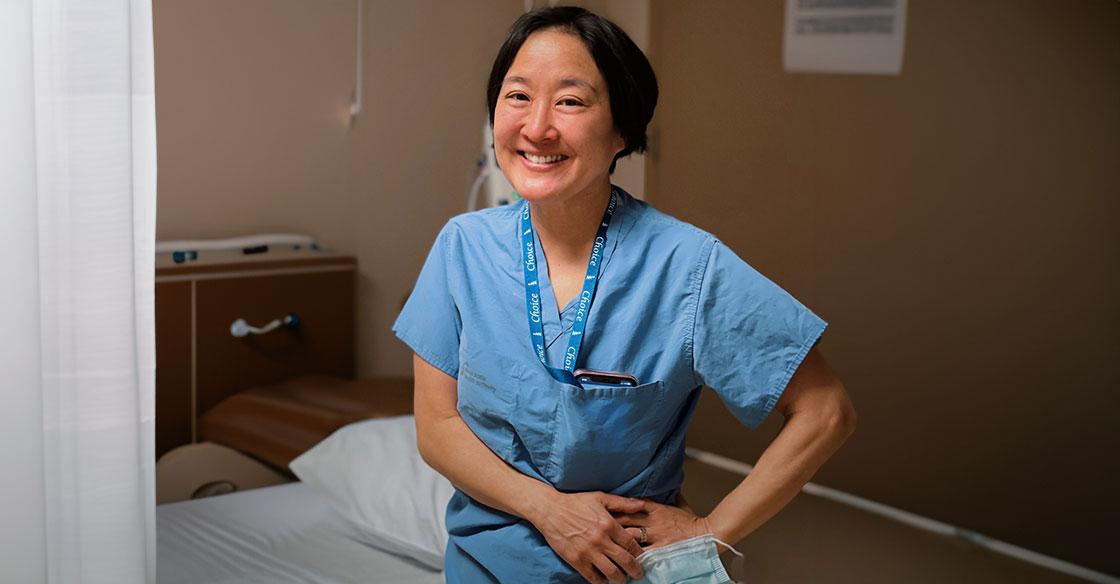
Pictured: Dr. Lianne Yoshida is the medical co-director of the QEII's Reproductive Options and Services (ROSE) Clinic.
As of March 2024, the QEII’s ROSE (Reproductive Options and Services) Clinic can no longer provide free IUDs and contraceptive devices for individuals who can't afford them. Generous donors through the QEII Foundation previously allowed ROSE Clinic patients to access this essential reproductive care, free of cost directly through the clinic – however, those funds have now been depleted.
This urgent need is why Dr. Lianne Yoshida, medical co-director of the clinic, is calling upon the community to donate to the QEII Foundation and help stock the ROSE Clinic – ensuring equitable access to this vital health and reproductive care.
"For individuals who do not have private insurance plans, IUDs and contraception can come at a significant cost — creating a major financial barrier for many," says Susan Mullin, president and CEO of the QEII Foundation.
Since 2005, QEII Foundation donors have generously provided over $240,000 in funding for the QEII's ROSE Clinic supporting everything from donor-funded IUDs and subdermal implants to ultrasound devices and comfort items — like recliners, lamps, blankets and phone charging stations — to help ensure a state-of-the art and comfortable care environment.
"Reproductive care is health care, which is why we're incredibly grateful to the many QEII Foundation donors who’ve supported care at the QEII’s ROSE Clinic and hope even more will step forward to support this urgent need,” says Mullin.
According to Dr. Yoshida, IUDs and contraceptive implants can cost anywhere between $370 to $420. With the cost of living at an all-time-high in Nova Scotia, she says the clinic has been giving free contraceptive devices to even more patients in need.
“Now that we’ve run out of donations, the last IUD our clinic had in its ‘compassionate use’ stock was given out on Friday (March 8),” says Dr. Yoshida.
She explains that while financial pressures have “always played a significant role in family planning and contraceptive choices”, rising costs and expenses have made things extra challenging.
“Many patients who benefit the most from these free contraceptives work one or multiple part-time jobs and have no healthcare coverage,” she notes.
This issue is particularly timely given the Government of Canada’s recent announcement of Bill C-64, with the goal to provide universal coverage for contraception.
It’s a significant milestone that will allow more individuals to access birth control, but as Dr. Yoshida explains that federal support can’t come quickly enough.
“Until universal coverage for contraception is fully realized, there remains a crucial need for donor-funded contraceptive devices — especially for patients here in Halifax.”
This International Women’s Day (March 8), Dr. Yoshida is hopeful that the community will step forward and help address this current gap by donating to the QEII Foundation.
Every dollar raised in support of the QEII’s ROSE Clinic directly impacts a patient’s reproductive choice — what a gift.
To help stock the QEII’s ROSE Clinic now, click here and select the ROSE Clinic (under ‘How may we use your donation’). There’s also other ways to give including making a gift of stock, becoming a monthly donor, pledging a donation over time, or making a gift through the QEII Better Care Gift Catalogue.